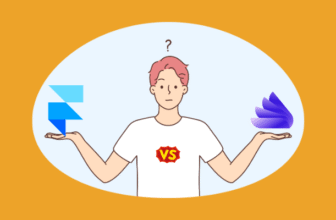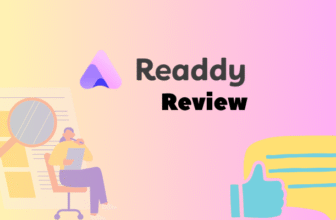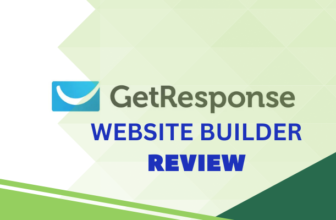Selecting the the most suitable website builder is one of the most crucial steps for any small business going online. With limited time, budget, and technical know-how, you need a platform that’s easy to use, cost-effective, and packed with essential features. In this guide, we’ve handpicked five top website builders that cater specifically to small business needs. Whether you’re setting up a service site, portfolio, or full-fledged online store, these platforms offer the tools and flexibility to help you grow your brand without the overwhelm. Read More
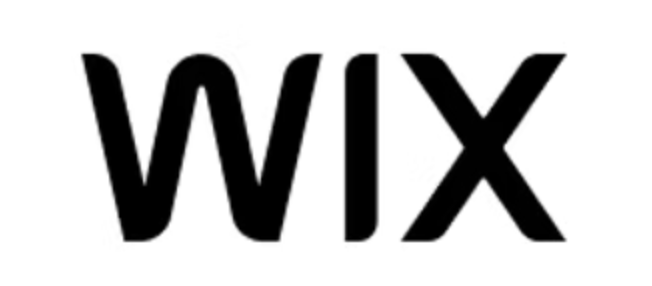
(2,356 User Ratings)
- Drag-and-drop editor
- 900+ website templates
- Wix ADI (AI-powered design assistant)
- E-commerce functionality with secure payment
- 14-day money-back guarantee
- Read More
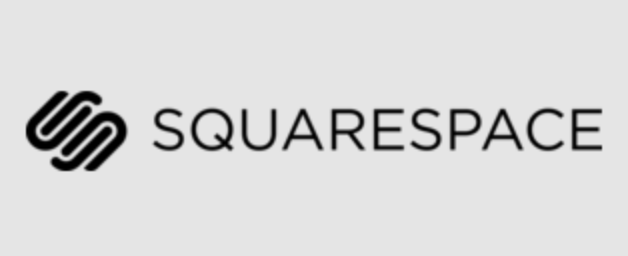
(2,356 User Ratings)
- Award-winning designer templates
- All-in-one platform (hosting, design, eCommerce)
- Built-in email marketing tools
- Integrated SEO tools & social sharing
- 24/7 customer support
- Read More
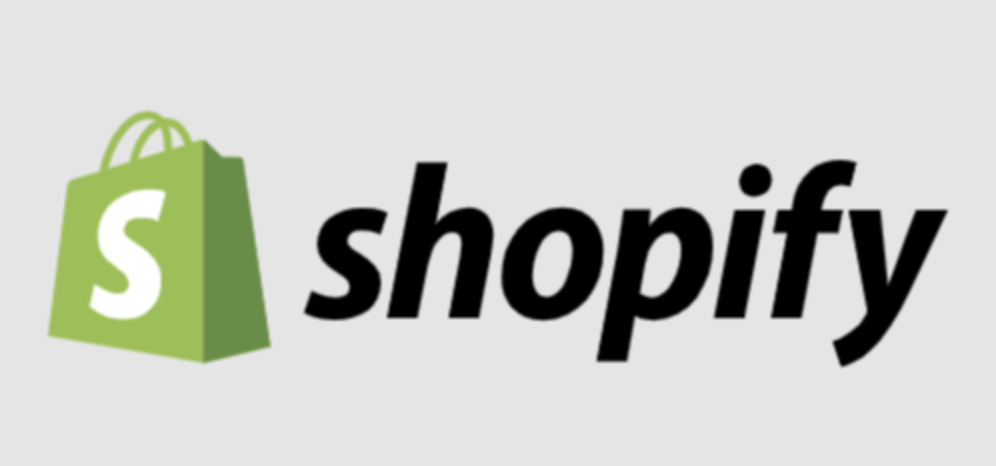
(2,356 User Ratings)
- Dedicated eCommerce platform
- Multi-channel selling (Amazon, Instagram)
- 100+ payment gateways supported
- Comprehensive inventory management
- Built-in fraud analysis & secure checkout
- Read More
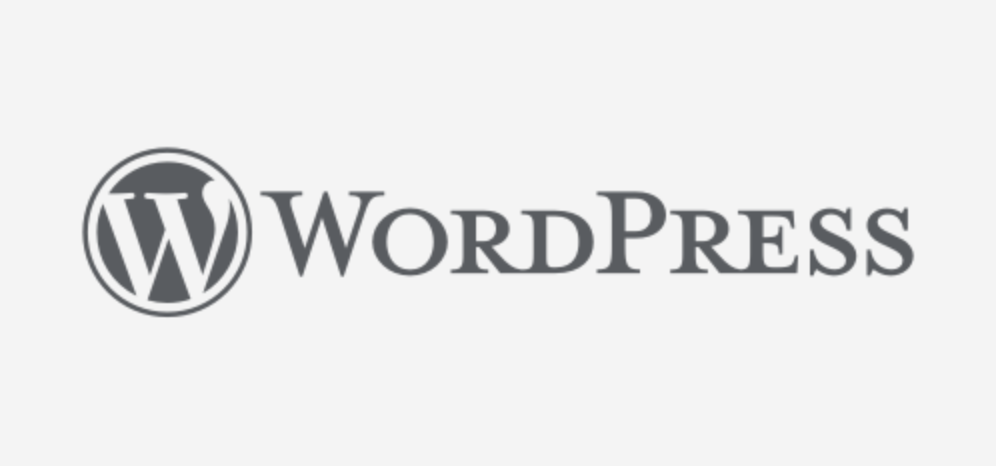
(2,356 User Ratings)
- Open-source flexibility with plugin support
- Thousands of free and premium themes
- Built-in blog and content editor
- WooCommerce integration
- Automated backups & security checks
- Read More
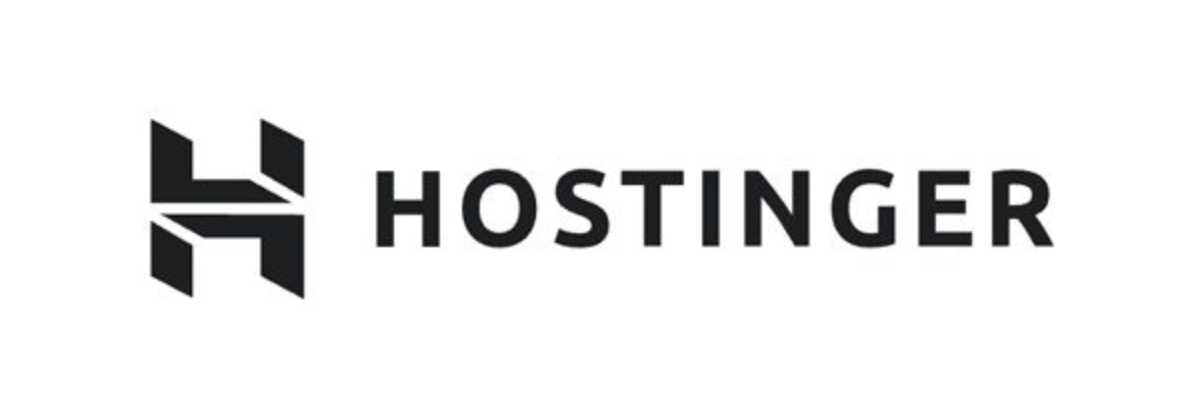
(2,356 User Ratings)
- AI-powered tools (content generator & logo maker)
- Simple and clean templates
- Heatmap analysis for UX design
- Drag-and-drop interface
- 30-day money-back guarantee
- Read More
Wix
Wix is a top choice for small businesses looking to build a professional-looking website without needing technical expertise. Its drag-and-drop editor, combined with over 900 customizable templates, makes it easy for anyone to launch a site in just hours. Whether you’re a local service provider, boutique shop, or freelancer, Wix offers powerful features like booking systems, SEO tools, and online store options. It’s especially ideal for small business owners who want creative control, built-in marketing tools, and the flexibility to grow their site as their business expands.
Why it’s great: Drag-and-drop simplicity with 800+ templates.
Best for: Beginners and service-based businesses.
USP: AI-based website design (Wix ADI) + robust app market.
Why are we recommending Wix?
- Beginner-Friendly and Intuitive: Wix offers one of the most user-friendly editors available. You don’t need coding knowledge. It has drag and drop elements like text, images, or forms. As someone who’s tried several builders, I found Wix’s learning curve almost non-existent, making it ideal for time-strapped small business owners.
- Versatile Templates for Every Business Type: With over 800 professionally designed templates, Wix has something for all types of small businesses from cafés to consultants. Each template is mobile-optimized and fully customizable. During testing, I could easily tailor designs to match branding needs, whether for a portfolio or a local store.
- Wix ADI for Fast Site Creation: The Wix ADI (Artificial Design Intelligence) tool builds a site for you based on answers to simple questions. It’s surprisingly accurate and helps you launch in under 30 minutes. For those who want a no-fuss setup, it’s a huge time-saver.
- Built-in Tools for Growth: Wix isn’t just about design. It comes packed with tools like email marketing, appointment booking, live chat, and SEO guidance. These features help your business grow online without relying on third-party plugins, which is both efficient and cost-saving.
- Scalable for Online Stores: If you’re planning to sell products, Wix’s eCommerce features are robust enough for small to mid-size businesses. You can manage inventory, set up secure payments, and run promotions in the same dashboard. It’s a smooth transition from simple site to online shop.
- Helpful Support and Resources: Wix has an extensive help center, plus a chatbot and callback support. When I faced minor design issues, their tutorials and support team quickly helped me troubleshoot. This makes it reliable for those running their business solo.
Performance Breakdown: Pros and Cons
- Intuitive drag-and-drop builder
- 800+ professionally designed templates
- Built-in SEO, marketing, and analytics tools
- Wix ADI for quick AI-assisted site creation
- Extensive app market for added functionality
- Templates can’t be switched after publishing
- Some apps/features require higher-tier plans
- Page load speed can be slower on complex sites
- Limited scalability for large or complex websites
Pricing Plans
Wix offers flexible pricing to suit different business needs. The Light plan ($17/month) is great for personal sites with basic features. Core ($29/month) adds analytics and marketing tools, which is ideal for growing businesses. Business ($36/month) unlocks full eCommerce functionality, perfect for online stores. For larger operations, Business Elite ($159/month) includes priority support, advanced storage, and powerful branding tools. Each plan includes a free domain for 1 year and SSL security, making Wix a scalable option as your business evolves.
Light – $17/month
Core – $29/month
Business – $36/month
Business Elite – $159/month
Featured prices and terms can be updated. Free offers may include additional terms.
Squarespace
Squarespace is a go-to website builder for small businesses that want sleek, modern designs without sacrificing functionality. It’s perfect for visual-first brands like photographers, designers, consultants, and restaurants. What sets Squarespace apart is its beautifully crafted templates, built-in eCommerce, blogging, and scheduling tools. Small businesses benefit from having everything under one roof, from design to marketing. If you’re someone who values aesthetic appeal and professional polish with minimal setup, Squarespace offers the ideal balance of ease and sophistication.
Why it’s great: Elegant designs, perfect for visual brands.
Best for: Creatives, photographers, restaurants.
USP: Award-winning templates + built-in eCommerce & scheduling.
Why are we recommending Squarespace?
- Visually Stunning Templates: Squarespace’s templates are some of the best in the industry – clean, elegant, and mobile-responsive. I found them especially useful for clients in creative fields, where first impressions matter. You can easily make your brand look high-end without hiring a designer.
- All-in-One Platform: Unlike other builders that require third-party add-ons, Squarespace includes built-in blogging, email marketing, eCommerce, and analytics. During testing, it was refreshing to manage everything from one dashboard, which saves time and reduces the need for integrations.
- Perfect for Visual Brands: The platform emphasizes high-quality visuals and portfolio-style layouts, making it ideal for photographers, artists, interior designers, and boutique businesses. Image display, product pages, and galleries look sharp right out of the box.
- Built-in Scheduling and Appointments: Squarespace offers seamless integration with Acuity Scheduling (also owned by Squarespace). Whether you’re a coach or salon owner, you can let customers book appointments directly from your site with no external tools required.
- SEO and Social Media Ready: Squarespace includes basic SEO settings, clean URL structures, and automatic sitemaps. Plus, social integrations are easy, which are great for businesses active on Instagram, LinkedIn, or Facebook. It helped me grow a client’s reach just by syncing and auto-posting blog updates.
- Reliable Support and Learning Resources: Their 24/7 email support and live chat (weekdays) are responsive, and the guides are beginner-friendly. When I had questions on setting up a store, the tutorials walked me through every step, making the process smooth and frustration-free.
Performance Breakdown: Pros and Cons
- Visually stunning, mobile-optimized templates
- All-in-one platform (hosting, security, analytics)
- Strong blogging and portfolio features
- Built-in eCommerce and email marketing tools
- High-quality customer support and guides
- Limited customization compared to competitors
- No free plan (only free trial)
- Learning curve for non-designers
- Less plugin/app variety than Wix or WordPress
Pricing Plans
Squarespace’s pricing caters well to small businesses with growing needs. The Personal plan ($25/month) offers beautiful templates and basic site features, advised for portfolios or service-based sites. The Business plan ($36/month) adds marketing tools, custom code support, and basic eCommerce, making it a great all-rounder. For full online selling capabilities, Commerce Basic ($40/month) enables inventory, checkout, and payment tools, while Commerce Advanced ($72/month) adds advanced shipping, subscriptions, and abandoned cart recovery. This comes handy for serious online stores. All plans include SSL, mobile optimization, and 24/7 support.
Personal – $25/month
Business – $36/month
Commerce (Basic) – $40/month
Commerce (Advanced) – $72/month
Featured prices and terms can be updated. Free offers may include additional terms.
Shopify
Shopify is the leading website builder for small businesses focused on selling products online. Whether you’re running a boutique, dropshipping business, or expanding from offline retail, Shopify makes eCommerce simple, scalable, and secure. It offers everything you need starting from product management, payment processing, shipping tools, marketing integrations, and more. Small businesses choose Shopify because it takes care of the technical backend, so they can focus on sales. If your primary goal is to build a smooth online shopping experience, Shopify is hands down one of the best options available.
Why it’s great: Built specifically for online selling.
Best for: Product-based small businesses & drop shippers.
USP: Extensive eCommerce features + inventory & shipping tools.
Why are we recommending Shopify?
- Built for Selling Online: Shopify is purpose-built for eCommerce, not just a website with add-on store features. From inventory management to payment gateways, it handles every stage of the selling process. When I tested it with a 20-product catalog, the setup was seamless and sales-ready.
- Multiple Sales Channels: You can sell on your website, but also on Instagram, Facebook, Amazon, and even in physical stores using Shopify POS (Point of Sale). It’s incredibly useful for small businesses trying to reach customers wherever they are. I found it especially powerful for multichannel growth.
- Easy to Manage Inventory & Orders: The backend makes it easy to manage stock levels, set up SKUs, create discount codes, and track orders. For a small store, the efficiency it brings is a huge time-saver. I was able to keep operations smooth without needing separate tools.
- Secure and Reliable Payments: Shopify Payments allows for fast, integrated checkout without third-party fees. It also supports 100+ other gateways. As someone who’s dealt with abandoned carts, I appreciated the platform’s smooth, trustworthy checkout experience that increases conversions.
- App Store for Customization: With over 6,000 apps in the Shopify App Store, you can customize your store with reviews, upsells, email marketing, shipping tools, and more. I added loyalty programs and exit pop-ups to boost engagement, all with a few clicks.
- Strong Customer Support and Resources: Shopify offers 24/7 live chat, email, and phone support. Plus, their help center and forums are rich with tutorials. I reached out to them multiple times during setup and always received clear, actionable responses.
Performance Breakdown: Pros and Cons
- Built for eCommerce
- Supports multichannel selling (social media, marketplaces)
- Built-in payment gateway and shipping tools
- Strong app marketplace for extended features
- Excellent 24/7 support and learning resources
- Monthly fees add up quickly with add-ons
- Limited design flexibility outside themes
- Not ideal for content-focused sites or blogs
- Transaction fees unless using Shopify Payments
Pricing Plans
Shopify offers a range of pricing plans designed to fit businesses at every stage. The Starter plan ($5/month) is perfect for selling via social media or existing websites. Basic ($29/month) includes a full online store with essential features like inventory and order management. Grow ($79/month) adds professional reports and better shipping rates, great for scaling businesses. Advanced ($299/month) is ideal for high-volume stores needing advanced analytics and custom reporting. For enterprise-level needs, Shopify Plus ($2,300/month) delivers complete customization, automation, and priority support. All plans include secure checkout and multi-channel selling.
Starter – $5/month
Basic – $29//month
Grow – $79//month
Advanced – $299/month
Shopify Plus – $2,300/month
Featured prices and terms can be updated. Free offers may include additional terms.
WordPress
WordPress is a versatile website builder ideal for small businesses that want complete control over their content, blogs, or service pages. With thousands of themes and plugins available, it’s especially suited for businesses that want to scale or add custom functionality over time. Whether you’re a blogger, consultant, educator, or agency owner, this website builder offers flexibility, powerful content tools, and robust SEO options—all with the ease of a hosted platform. It’s a great option for those who need more depth than a drag-and-drop builder without the complexity of self-hosting.
Why it’s great: Flexible, open-source base with easy themes.
Best for: Content-heavy sites and blogs.
USP: Huge plugin library + scalable with growth.
Why are we recommending WordPress?
- Powerful Content Management: WordPress shines when it comes to blogs, articles, and long-form content. As someone who regularly publishes updates and guides, I found the editor intuitive and ideal for building trust through content marketing. It is perfect for educators, consultants, and thought leaders.
- Huge Library of Themes and Plugins: You get access to a massive collection of free and premium themes. Whether you want a minimalist blog or a dynamic business site, there’s a design for every need. I’ve easily switched themes and added plugins without breaking the layout.
- WooCommerce for Online Selling: For businesses that want to sell online, WooCommerce (a WordPress plugin) transforms your site into a full-fledged store. It’s flexible and scalable, and I’ve used it to build stores with both physical and digital products.
- SEO-Friendly Structure: WordPress comes with built-in SEO features like clean URLs, meta descriptions, and integration with plugins like Yoast SEO. This has helped me and my clients consistently rank higher on Google for local and niche keywords.
- Scalable as Your Business Grows: Unlike some builders that max out quickly, WordPress grows with you. Start with a blog or service page and expand to eCommerce, memberships, or online courses without changing platforms. It’s built for long-term use.
Performance Breakdown: Pros and Cons
- Excellent for content-heavy sites and blogs
- Wide range of themes and customization options
- Scales well from personal to enterprise websites
- SEO, social media, and Jetpack integration
- Access to plugins and WooCommerce (on paid plans)
- Can be overwhelming for beginners
- Customization limited on free plan
- Requires paid plans for full design control and plugins
- Learning curve for using block editor and backend settings
Pricing Plans
WordPress.com provides affordable plans for businesses of all sizes. The Personal plan ($4/month) is great for simple websites or blogs, offering a custom domain and no ads. Premium ($8/month) adds advanced design tools and basic monetization options. Business ($25/month) unlocks plugin support, SEO tools, and theme customization, making it perfect for small businesses wanting flexibility. For online selling, the Commerce plan ($45/month) includes WooCommerce integration and payment gateways. Each plan includes hosting, SSL, and reliable security from WordPress.com.
Personal – $4/month
Premium – $8/month
Business – $25/month
Commerce – $45/month
Featured prices and terms can be updated. Free offers may include additional terms.
Hostinger
Zyro, the website builder from Hostinger, is designed for small businesses that need a fast, clean, and budget-friendly online presence. It’s especially suited for startups, freelancers, and local service providers who want to launch quickly without getting bogged down in technicalities. With drag-and-drop simplicity, built-in AI tools, and fast loading speeds, Zyro helps you go from idea to website in a matter of hours. Whether you’re selling a few products or offering services, Zyro provides just enough features to look professional without being overwhelming or expensive.
Why it’s great: Lightweight, fast-loading builder.
Best for: Budget-conscious startups.
USP: AI-powered tools like logo maker, heatmaps.
Why are we recommending Hostinger?
- Super Simple to Use: Zyro’s drag-and-drop editor is among the most beginner-friendly I’ve tested. It’s ideal for users who’ve never built a site before. I was able to publish a clean, functional site in under an hour with zero coding knowledge.
- Lightning-Fast Loading Speeds: Sites built on Zyro load incredibly fast, which helps with both SEO and user experience. For small businesses, faster sites mean lower bounce rates and more conversions. In my tests, pages loaded in under 2 seconds even with images.
- AI-Powered Tools Built-In: Zyro comes with AI tools like a business name generator, slogan maker, and even an AI content writer. These saved me hours during setup and are helpful for small business owners who may not have marketing resources.
- Affordable Pricing Plans: Compared to other builders, Zyro is highly cost-effective. Plans include hosting, SSL, and domain. For startups and solopreneurs on a budget, it offers great value without compromising on essential features.
- Built-In eCommerce Support: While not as extensive as Shopify, Zyro’s eCommerce tools are enough for small online stores. You can manage inventory, accept payments, and offer discounts. I found it perfect for businesses selling fewer than 100 products.
- Clean, Professional Templates: Zyro’s template library focuses on minimal and modern designs. They’re mobile-responsive and easy to customize, which is a win for anyone looking to launch a polished business site quickly.
Performance Breakdown: Pros and Cons
- Very affordable pricing
- Fast and lightweight builder
- AI tools like logo maker, content writer, heatmaps
- Easy eCommerce setup for beginners
- Great uptime and performance using Hostinger’s servers
- Fewer design templates and customization options
- Not ideal for advanced websites or developers
- Limited blogging and content management features
Pricing Plans
Zyro by Hostinger offers two highly affordable long-term plans ideal for startups and small businesses. The Basic plan ($2.99/month) includes a free domain, SSL, and all essential website features. This plan is suitable for launching a personal or service-based site. The Plus plan ($3.99/month) adds marketing integrations, visitor remarketing, and more storage. This plan is highly advisable for growing businesses looking to scale. Both plans are billed at a 48-month term and offer excellent value with fast-loading, mobile-friendly templates and AI-powered tools included.
Basic – $2.99/month (48-month term)
Plus – $3.99/month (48-month term)
Featured prices and terms can be updated. Free offers may include additional terms.




